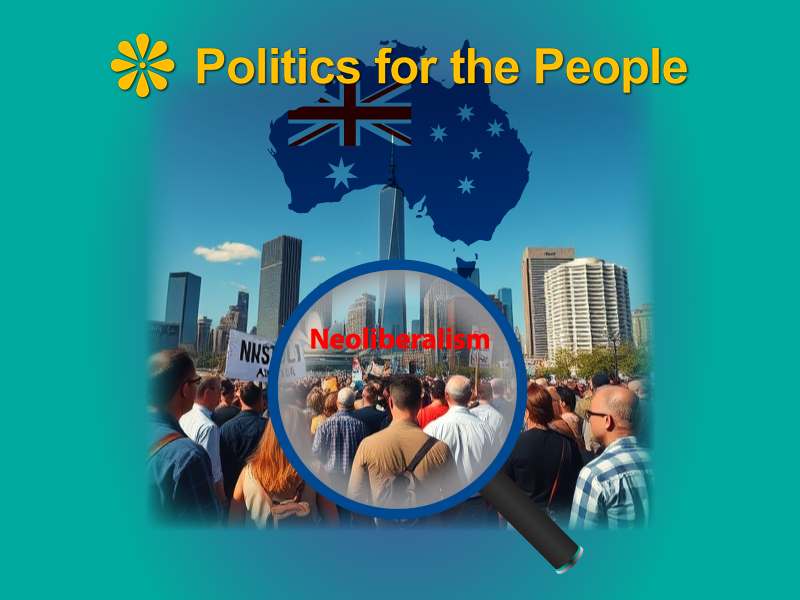Description:
Dive deep into the impacts of neoliberalism policies on government spending across military and social sectors. Discover how to foster balance.
Introduction
As neoliberal ideologies continue to shape global fiscal policies, a glaring disparity is clear in the allocation of funds towards military enhancements versus social welfare. This comprehensive exploration looks to unpack the foundations of this imbalance and discusses the potential for a fairer resource distribution that equally supports national defence and enhances societal health.
Understanding Neoliberal Ideology in Fiscal Policies
The Rise of Neoliberal Economics

Originating in the late 20th century, neoliberalism advocates for reducing governmental influence in economic affairs, arguing that free markets lead to efficient outcomes. The ideology encourages privatization of state-owned enterprises, deregulation of industries, and reduction of trade barriers. In doing so, it positions the private sector as the primary engine of economic growth, often prioritizing corporate profits and economic efficiency over social welfare. This shift has profound implications for public policy, particularly in how government budgets are distributed.
Neoliberal Impacts on Military and Corporate Funding
Under neoliberal policies, government spending on military and corporate subsidies has escalated, reflecting the ideology’s emphasis on strengthening national security and economic competitiveness. Defence spending, particularly, is justified as essential for keeping a competitive edge in international relations and technological innovation. Corporations receive substantial subsidies under the guise of job creation and economic stability, further entrenching the power of the military-industrial complex and big business in policy circles. This dynamic diverts resources away from social sectors, where investment is often viewed as less critical to economic growth.
Consequences for Social Services Under Neoliberalism
The Erosion of Public Welfare Systems
Neoliberalism’s emphasis on privatization and reduced public spending has led to significant reductions in government investment in social services. This ideology suggests that the market can more effectively deliver services such as healthcare, education, and welfare, leading to a scaling back of public programs in these areas. The consequences are stark: increased inequality, poorer service delivery, and greater disparities in access to essential services, particularly for marginalized groups who rely heavily on public support.
Individualism Over Collective Welfare
A fundamental tenet of neoliberal thought is the promotion of individual responsibility over collective welfare. This shift has resulted in a culture where social aid programs are often stigmatized, and self-reliance is valorised. The reduction in community and government support systems encourages a narrative where poverty is viewed as a personal failure rather than a systemic issue, worsening social divides and undermining the fabric of community solidarity.
Reevaluating Fiscal Priorities for a Fairer Society
The Need for Balanced Budget Allocations
In response to the social challenges worsened by neoliberal priorities, there is a growing call to reevaluate how budgets are distributed. Advocates for change argue for a balanced approach that does not disproportionately favour military and corporate interests over the basic needs of the population. By rethinking budget priorities, governments can begin to address the social and economic disparities that have widened under neoliberal regimes.
Exploring Alternatives to Neoliberalism
Exploring alternatives to neoliberal economic policies involves considering frameworks that prioritize social equity and collective well-being alongside or even above economic efficiency. Economic models such as social democracy or cooperative economics emphasize the importance of investing in social infrastructure and services to build a fairer society. These models advocate for progressive taxation, increased social spending, and government intervention as necessary tools to redistribute wealth and opportunities more fairly.
A Call to Action for Equitable Funding
It is imperative that we challenge the prevailing neoliberal framework and advocate for fiscal policies that promote a balance between national security and the well-being of the citizenry. By fostering dialogue and supporting policies that aim for equity and social justice, we can work towards a society that values both safety and social support.
Question for Readers
How do you perceive the impact of neoliberal policies on your community? What changes would you propose to create a more balanced approach to government spending?
Call to Action
Engage with community leaders and policymakers to advocate for a shift in fiscal priorities. Share this article, your thoughts and support initiatives that aim to rebalance our economic and social structures.
References:
Neoliberalism: the idea that swallowed the world: https://www.theguardian.com/news/2017/aug/18/neoliberalism-the-idea-that-changed-the-world
The Military-Industrial Complex is on Corporate Welfare: https://www.thenation.com/article/archive/the-military-industrial-complex-is-on-corporate-welfare/
Military Neoliberalism: Endless War and Humanitarian Crisis in the Twenty-First Century: https://scholarlycommons.law.case.edu/cgi/viewcontent.cgi?article=1100&context=swb
Ideology before evidence: How neoliberals have responded to recent Australian welfare reform: https://lens.monash.edu/@politics-society/2023/07/03/1385913/ideology-before-evidence-how-neoliberals-have-responded-to-recent-australian-welfare-reform-measures

